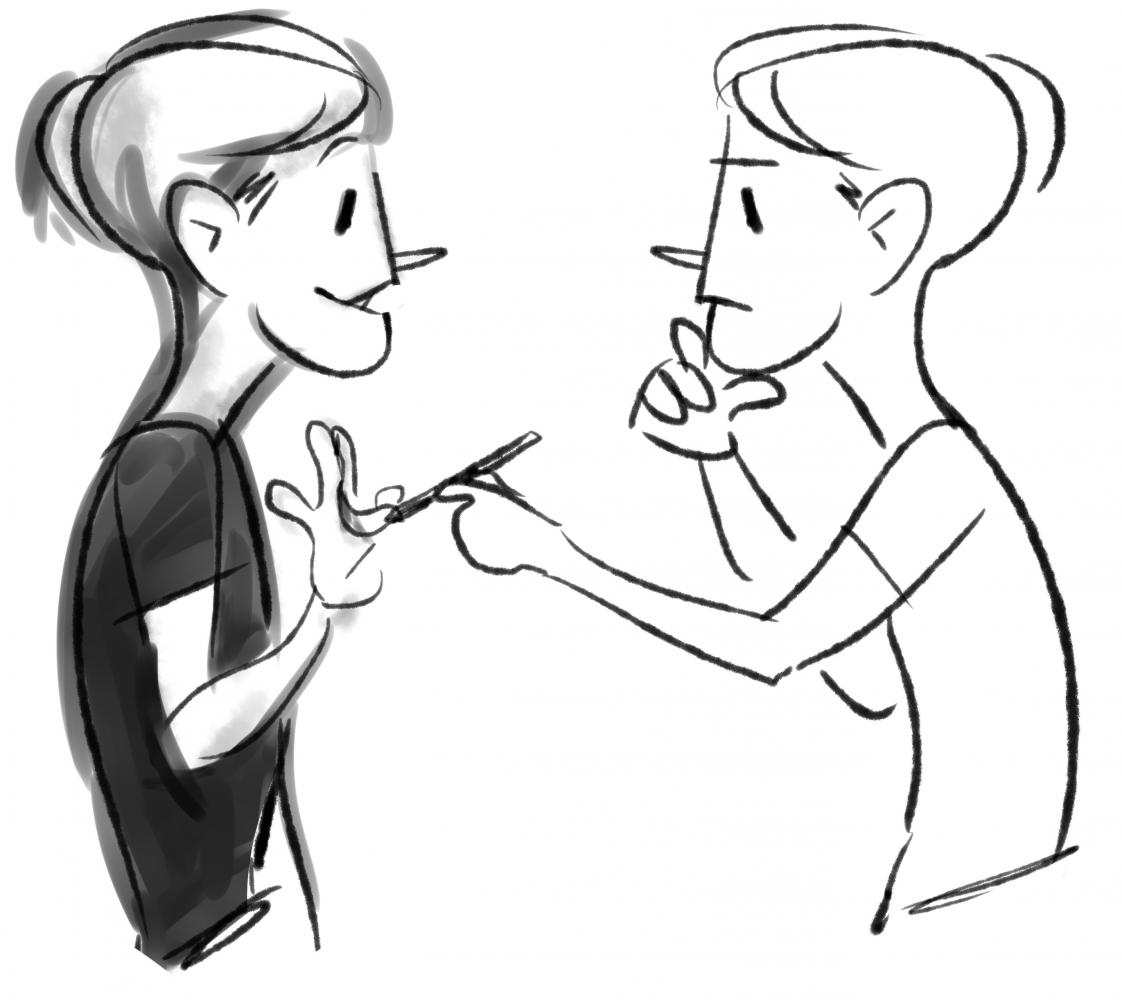Can you Separate a Creator from their Works? Maybe.
October 19, 2017
There is an idea of creation behind every piece of artwork, every book and every piece of music, where sometimes we go so far as to think that there is a part of the creator left in the work; and we see it as their legacy. Yet, for the instances in which the legacy is mixed or tainted because of personal failings on the part of the creator, for members of modern society, how are we to view that author, artist or musician? Is it our obligation to try and learn the sordid contexts of our favorite creators? If Gill Sans is my favorite font, should I, as someone who uses the font, know that the creator Eric Gill, sexually abused his daughters? And it seems to me that the answer–as it relates to the enjoyment of a font as a font, or a book as a book, or a piece of artwork as artwork–is no.

Enjoying a painting for its artistic merits: maybe you really like the color, the shapes, or the use of light doesn’t seem to be a part of any real endorsement of the problematic artist who created it. Yet, when what you enjoy about the painting is the content, or what you enjoy about the book is the problematic subject matter drawn from that author or painters own life, it can feel like you’re endorsing that person’s essence in-and-of themselves. But what someone creates is not necessarily who they are, and a person’s self doesn’t seem like it can be so narrowly defined. By rejecting a work on its face on the basis of the identity of the author, you are implicitly saying that nothing good can ever come from an ‘x’ type of person. Something along the lines of, ‘I couldn’t possibly enjoy Woody Allen’s movies because his sexual abuse is so problematic’ doesn’t acknowledge that there are other elements to his identity as a creative filmographer that might make his movies good. You can enjoy Woody Allen movies because of the dialogue, the plot or the way he creates a scene, all of which have nothing to do with his identity as a sexual abuser. You can denounce Woody Allen the person without rejecting everything that ever came from him, and you can enjoy movies that you watch without knowing the past of the director.
That being said though, this brings up the question of whether we, as consumers of these works, should make an effort to learn about the identity of the creators. As a conscious reader or viewer of art, I can take it upon myself to know the historical context, to know the biography, especially if it feels like it would further my enjoyment, or if I feel obligated to do so. But if someone who doesn’t care about the context, that doesn’t feel like it affects their enjoyment, and who prides themselves on only valuing art or literature on specific, narrowly defined parameters, there doesn’t seem to be anything wrong with doing that. The aim should be to know ourselves, know what we value, and to know what we find important, so that when these issues continue to surface, we know what to do. The problems will constantly arise, but it is up to us, and up to each individual to make their own decisions on how to respond.








